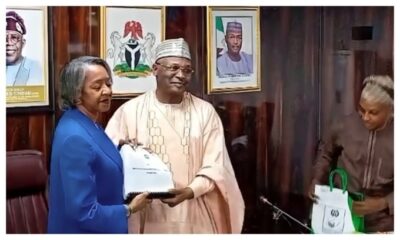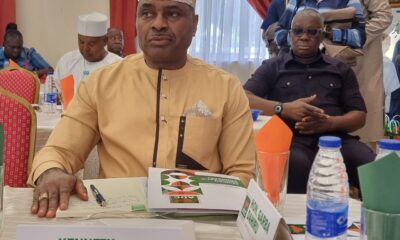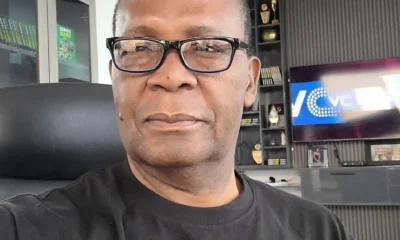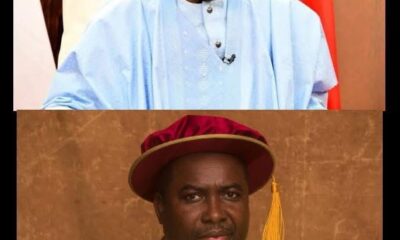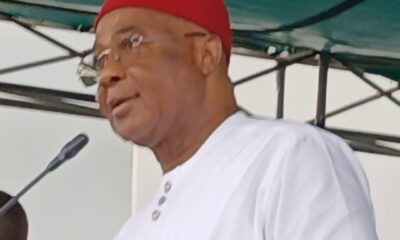Education
Tinubu postpones students loan launch indefinitely

Federal Government has postponed the launch of the Nigerian Students Loan Scheme indefinitely.
Akintunde Sawyer, the Executive Secretary of the Nigerian Education Loan Fund (NELFUND), disclosed this in an interview with ARISE NEWS.
The loan which was formally slated to take off on Thursday, March, 14, has been postponed again, as there are some corrections that are being made around the launch according to Sawyer.
“Unfortunately, I won’t be able to commit to a specific date. We are sort of waiting to ensure that all the stakeholders are aligned to make sure that nobody is blindsided, then we can actually roll this out in a meaningful, comprehensive, wholesome, and sustainable way.”
President Bola Tinubu signed the bill into law in June 2023, to establish a Students Loan Fund (SLF) to provide interest-free loans to Nigerians seeking higher education.
The bill, sponsored by Femi Gbajabiamila, the former Speaker of the House of Representatives, was initially planned to kickstart between September and October 2023.
President Tinubu announced the scheme would begin by January 2024, after his Government failed to meet the October deadline last year.
In January, Yusuf Sununu, Minister of State for Education, confirmed at the Federal Executive Council (FEC) meeting, while speaking to reporters, that preparations were completed for the scheme to begin, including the finalisation of the Student Loan Scheme website and the conclusion of technical plans to facilitate the scheme’s kick-off.
Education
Edo NUT decries shortage of teachers in public schools
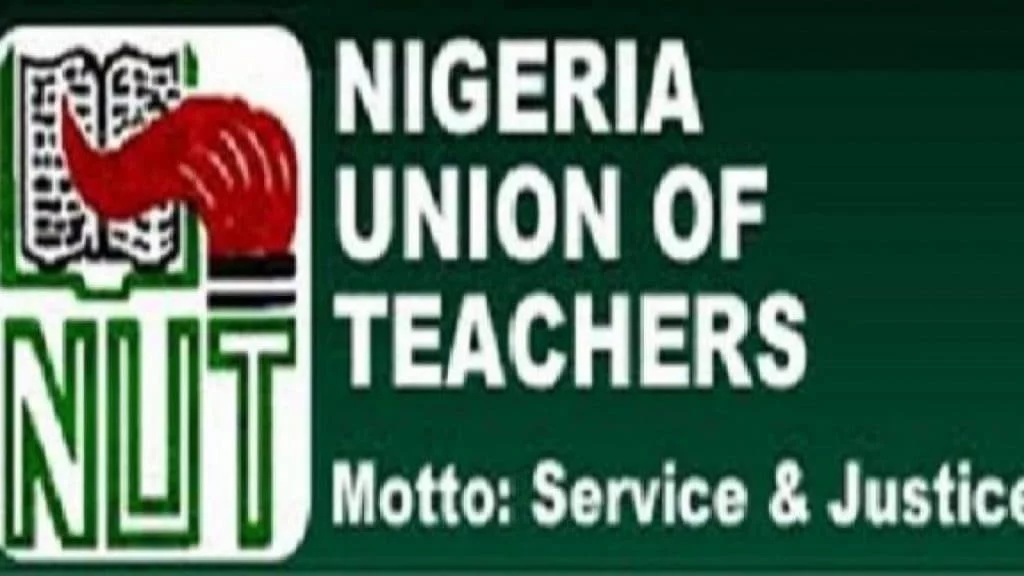
The Edo State chapter of the Nigerian Union of Teachers, NUT, on Sunday decried the shortage of teachers in the state’s public schools.
Bernard Gbenga Ajobiewe, the state chairman of NUT, lamented the shortage at the 2025 World Teachers’ Day in Benin City with the theme, ‘Recasting Teaching as a Collaborative Profession’.
Ajobiewe, who commended the Governor Monday Okpebholo-led government for the infrastructural development so far executed in schools, noting that the infrastructure would amount to nothing if there are no teaching personnel.
According to him, the dearth of teachers os more pronounced in the rural areas.
He added that the government of Adams Oshiomhole left behind over 13,000 teachers and that the figure reduced to about 6,000 at the end of Governor Godwin Obaseki’s administration.
The NUT chairman added that over 7,000 teachers are needed in the basic education system.
“We want to say here that after all the reconstruction and renovations of our schools and there are no teachers in the schools it borne out that nothing has been done.
“We want to say that there is a grossly acute shortage of teachers in our schools especially in our rural areas, and as such we want to beg the government to please recruit more teachers so that the vacuum created can be filled so that teaching and learning can be effective in our schools.
“We also look at the dilapidated structures in some of our schools especially in the rural areas. And I know that the government is trying its best but let us still intensify efforts because there are still challenges in terms of infrastructure
“Our slogan is that an average Edo child should be able to access quality education. So if every Edo child should access quality education that means that all facilities and otherwise should be made available in all schools undermining the status of the location whether it is a hamlet, village or a city all schools must enjoy equal facilities,” he said.
The NUT chairman also demanded the urgent implementation of financial benefits for teachers, promotions and the accrued arrears, provision of comprehensive teachers welfare policy including housing, insurance and rural posting incentives.
His equally called for awards to outstanding performing teachers, students/pupils and the inclusion of NUT leadership in SUBEB as board members in line with the UBEC law.
Education
Reverse decision to hand over public schools to missionaries – NUT tells Okpebholo
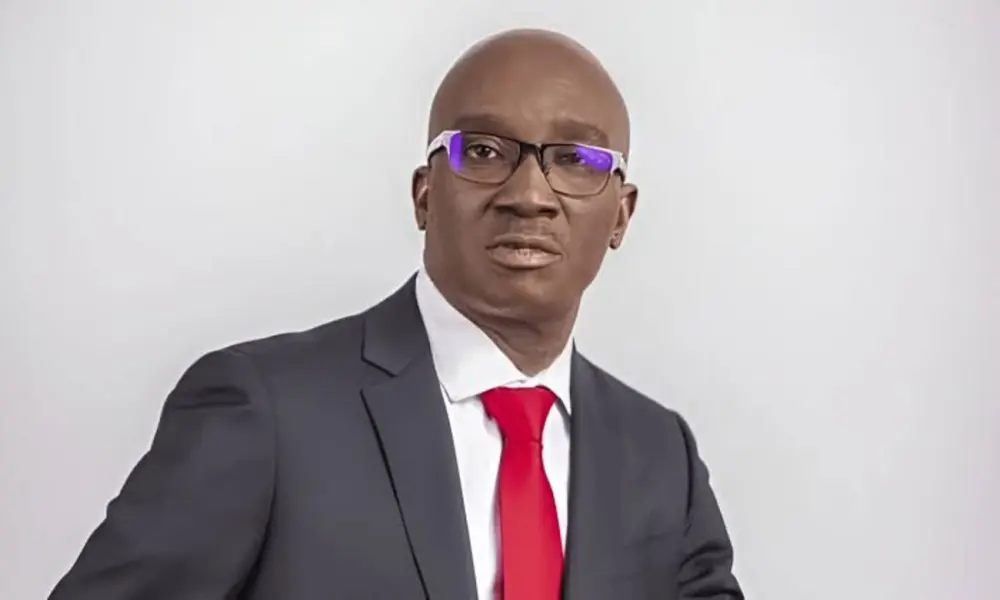
The Edo State chapter of the Nigerian Union of Teachers, NUT, on Sunday urged Governor Monday Okpebholo to rescind his decision to hand over public schools to Catholic missionaries.
The NUT said the development may bring about inequalities, inaccessible to marginalized group
Ekwutosblog reports that state chairman of the union, Bernard Gbenga Ajobiewe, made the demand in his speech at the celebration of the 2025 World Teachers’ Day in Benin City.
The 2025 World Teachers’ Day has the theme, ‘Recasting Teaching as a Collaborative Profession’.
Ajobiewe appealed to the government to take a second look into the issue.
He opined that the handing over of schools to missionary organisations may deprive marginalized groups the opportunity to benefit from religious affiliate institutions.
“As a union, we are committed to advocating for the right, welfare of our people at the same time development of education in our State.
“Sir, we strongly appeal to you to take a second look into the issue of handing over schools to Missionaries organisations in the State. As a union, we are not in support of this agenda,” he said.
Ajobiewe further said the union believes that education should be secular, noting that any attempt to handover schools to missionaries will jeopardize the good intention of the state government.
He noted that the intention of the state government is to ensure that all Edo children receive quality and affordable education.
“The union observed that handing over schools to missionaries in Edo State is complex and needs to be handled with sensitivity and foresight to avert the unforeseen damages it may cause to the education sector in the state and society at large,” he said.
Ekwutosblog recalls that the Nigeria Union of Teachers, All Nigeria Confederation of Principals of Secondary Schools, and the Association of Primary School Head Teachers of Nigeria, had in June 2025 faulted the planned return of schools to missionaries by the Edo State government.
The unions in a joint letter to the government expressed concern and disagreement over the decision of the government to hand over Catholic missionary schools to their original owners.
They posited that the move may seem like a positive step towards restoring autonomy and promoting religious freedom, but it poses significant dangers to the education sector and the state as a whole.
In his remarks, the State chairman of the Nigeria Labour Congress, NLC, Bernard Egwuakhide, said despite the difficulties inherent in the teaching profession, teachers put in their best to mentor and mould children who are the future leaders of the country.
“As teachers, you are the oil that makes the wheel of progress and growth of any and every society keep moving and moving towards the desired goal.
“As the Nigeria labour congress, Edo state council chairman, I congratulate you today as you continue to ensure that the economic, social, cultural and political development of Nigeria and indeed the world is continuous through your impartation.
“You are the momentum that continues to champion a society where men and women have relative equality and for this the whole world is grateful.
“Let us not also forget that the job of teaching is better done when parents, guardians and indeed the government collaborate to make the teacher wake up to performing their everyday wonders with great excitement, hope and a sense of fulfillment.
“I want to use this opportunity to implore the government in all its ramifications to encourage our teachers so that they can better do their jobs,” he added.
On her part, the Edo State Executive Chairman of SUBEB, Mrs Ebanehita Sonia Omonzane urged teachers in the state to to continue shaping young minds with patience and integrity, describing them as “true nation builders”.
Omonzane also urged every teacher to continue to embrace learning, teamwork and collaboration among themselves.
Education
Chief Christopher Alexander Sapara Williams: Nigeria’s First Indigenous Lawyer and Pioneer of Legal Advocacy
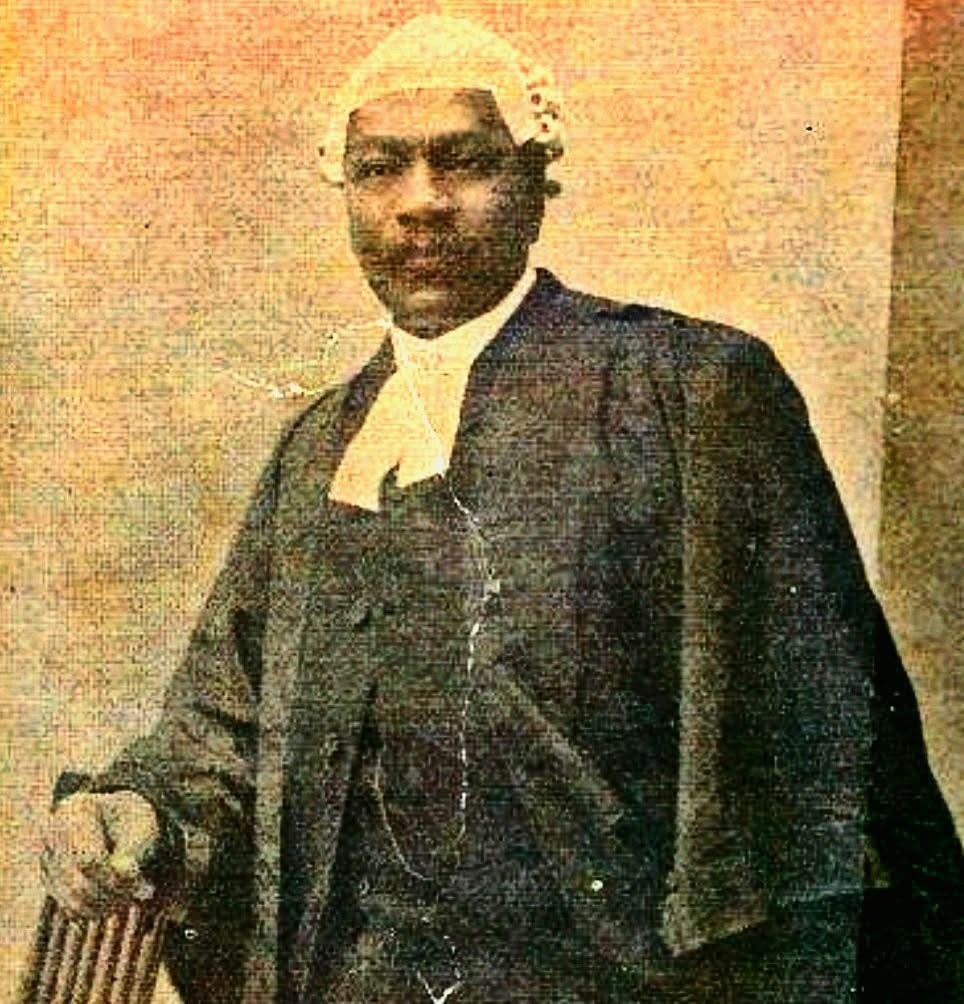
Chief Christopher Alexander Sapara Williams CMG remains a towering figure in Nigeria’s legal and political history. Known as the first indigenous Nigerian lawyer called to the English Bar, his contributions to law, politics, and social justice laid the foundation for modern Nigerian jurisprudence and political engagement during the colonial era.
Early Life and Family Background
Christopher Alexander Sapara Williams was born in 1855 in Freetown, Sierra Leone, to Yoruba parents of Egba descent who had been resettled in Sierra Leone following the abolition of the transatlantic slave trade. He later returned to Lagos, where his family’s Yoruba roots were deeply connected to the cultural and intellectual elite of the time.
Sapara Williams came from a distinguished family known for its service to the community. His younger brother, Dr. Oguntola Odunbaku Sapara, became one of Nigeria’s earliest medical practitioners and a leading advocate for public health reforms in Lagos. Together, the brothers embodied the growing intellectual and professional class among Africans during the late 19th and early 20th centuries.
Education and Legal Career
Williams received his early education in Sierra Leone, which was at that time a center for Western education in West Africa. His academic excellence earned him the opportunity to study law in England, where he enrolled at Inner Temple, one of the four Inns of Court in London.
On November 17, 1879, Sapara Williams was called to the English Bar, marking a historic achievement as the first indigenous Nigerian lawyer. Upon returning to Lagos, he established himself as a legal practitioner, quickly gaining a reputation for his mastery of both English common law and Nigerian customary law.
Political and Legislative Contributions
Beyond his legal practice, Sapara Williams became a major force in early Nigerian politics. He was deeply involved in public affairs during the colonial period, advocating for the rights of Africans under British rule. His political career reached its peak when he was appointed to the Legislative Council of the Colony and Protectorate of Southern Nigeria in 1901.
Following the 1914 amalgamation of Northern and Southern Nigeria by Lord Frederick Lugard, Williams continued to serve in the newly constituted Legislative Council, representing the interests of Nigerians at a time when colonial policies often marginalized indigenous voices.
His speeches on governance, civil rights, and justice earned him respect across racial and political lines. One of his most famous statements, “The legal practitioner lives for the direction of his people and the advancement of the cause of his country,” became a timeless creed for generations of Nigerian lawyers, including the late Chief Gani Fawehinmi, who often quoted him.
Advocacy and Legal Philosophy
Sapara Williams was not only a lawyer but also a reformer who believed in the use of law as a tool for social progress. He strongly defended freedom of the press and civil liberties. In 1907, he opposed colonial attempts to restrict press freedom in Nigeria, warning that such laws could be used to suppress public opinion and political debate.
He also championed the recognition of customary law, arguing that Nigeria’s indigenous legal traditions held valuable moral and cultural insights. His ability to blend customary principles with English legal concepts helped shape early legal practice in colonial Nigeria.
Honors and Recognition
In recognition of his public service, Sapara Williams was awarded the title of Companion of the Order of St. Michael and St. George (CMG) by the British Crown—an honor given to colonial administrators and distinguished individuals in the empire. He also received traditional recognition in Lagos, reflecting his dual stature as both a colonial statesman and a Yoruba chief.
Death and Legacy
Chief Christopher Alexander Sapara Williams died in 1915, at the age of 60, after decades of service to his people and his country. His death was widely mourned across the Lagos Colony, and he remains celebrated as one of the earliest African intellectuals who balanced Western education with indigenous identity.
Today, his name is immortalized in Nigeria’s legal and educational circles. The Nigerian Bar Association (NBA) and legal scholars continue to honor his contributions to the legal profession, particularly his insistence that the law should serve humanity and national progress.
Sources
Falola, Toyin. Colonialism and Violence in Nigeria. Indiana University Press, 2009.
-

 Politics12 months ago
Politics12 months agoMexico’s new president causes concern just weeks before the US elections
-
Business12 months ago
US court acquits Air Peace boss, slams Mayfield $4000 fine
-

 Trending12 months ago
Trending12 months agoNYA demands release of ‘abducted’ Imo chairman, preaches good governance
-
Entertainment12 months ago
Bobrisky falls ill in police custody, rushed to hospital
-
Entertainment12 months ago
Bobrisky transferred from Immigration to FCID, spends night behind bars
-

 Politics12 months ago
Politics12 months agoRussia bans imports of agro-products from Kazakhstan after refusal to join BRICS
-

 Politics12 months ago
Politics12 months agoPutin invites 20 world leaders
-
Education1 year ago
GOVERNOR FUBARA APPOINTS COUNCIL MEMBERS FOR KEN SARO-WIWA POLYTECHNIC BORI

